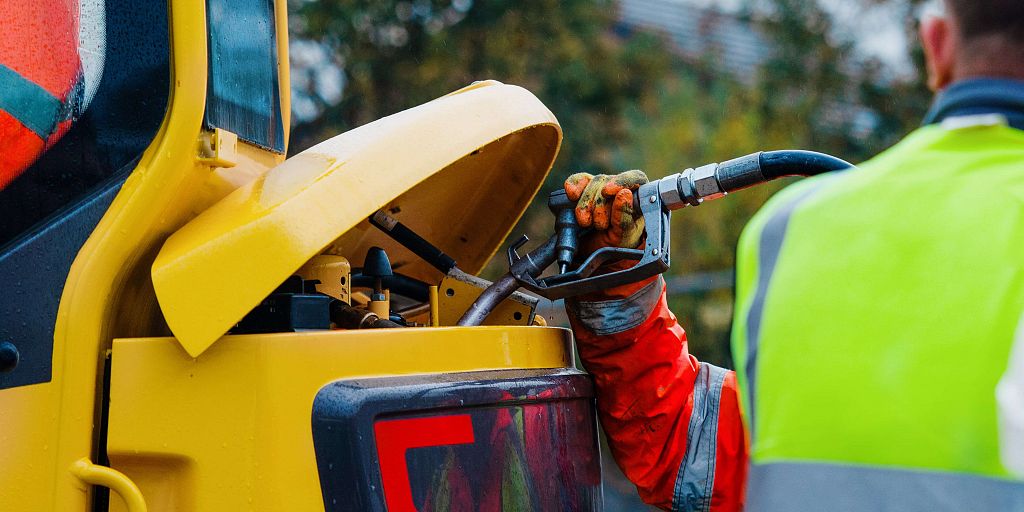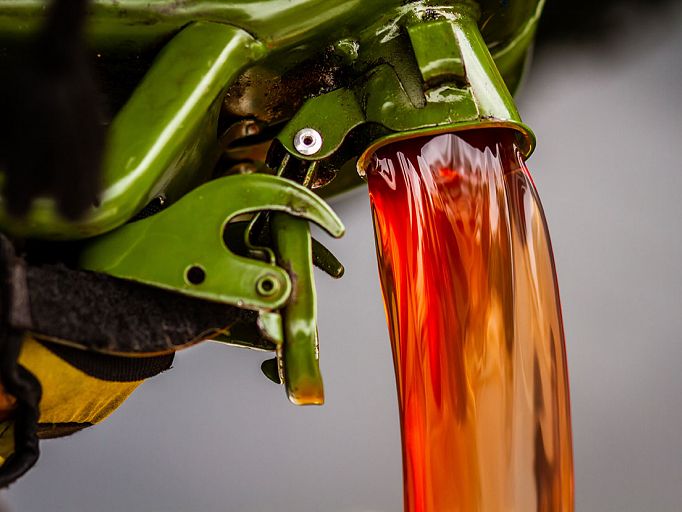- Oil
- Diesel
- Petrol
- AdBlue
- Water
- Sewage
- Hot Water Cylinders
-
Brands
- New Releases
- In Stock
- Sale
- Best Sellers
- Fuel Tank Hire
- More
-
Services
Home / Blog / red diesel / Summer vs. Winter Grade Diesel: What's the Difference?
Summer vs. Winter Grade Diesel: What's the Difference?
8th March 2024 in red diesel

Red diesel undergoes a seasonal grading process which tailors its composition to meet the demands of quite different weather conditions during the changing seasons. This is a nuanced approach to fuelling vehicles and machinery which acknowledges that there are different challenges to face throughout the year. There are two distinct grades of red diesel – summer and winter.
As an approximate guide, the transition between the use of summer and winter grade red diesel occurs twice a year - typically switching to winter grade in November and then to summer grade in March. This adjustment of red diesel fuel supply ensures that machinery, vehicles and equipment are consistently supplied with fuel which is optimised for the season’s likely weather conditions. This switch ensures reliability, and therefore operational efficiency, throughout the agricultural and industrial year.
- What is red diesel?
Red diesel (often referred to as tractor diesel) is manufactured to be used for vehicles and machinery in the agricultural and construction industries. Red dye added to standard diesel is a method of ‘taxation control’ - a visual indicator that this particular fuel is only intended for industrial use and not for the general public (i.e.. it is illegal to use it in vehicles or equipment which is driven on public roads).
- How do summer and winter grades of red diesel differ?
Summer blends of red diesel maximise efficiency and performance in warmer temperatures, but winter blends are engineered to be cold-resilient, safeguarding against wax crystal formation and condensation, potential problems which could compromise engine function. Although winter-grade diesel technically could be used year-round, practical and economic constraints often dictate seasonal usage. The production of winter-grade red diesel entails higher costs compared to summer-grade.
- Do I have to use the right sort of red diesel per season?
Using the incorrect grade of diesel for your current weather conditions can have detrimental effects on machinery and equipment. If summer-grade diesel is used during winter (or if any residual summer fuel remains in fuel tanks), the risk of difficulties in starting an engine plus general malfunctions and impaired performance in equipment significantly increases. These problems arise due to the formation of wax crystals in colder temperatures, which can cause blockages in fuel lines and filters.
Diesel fuel contains paraffin, essential for its combustion efficiency but prone to crystallisation in cold temperatures. Therefore, winter grade red diesel incorporates special additives designed to lower the crystallisation temperature of paraffin, severly lowering the risk of blockages and maintaining fuel system integrity even in conditions which are suboptimal.
- Can Tanks R Us help with red diesel?
It's important to buy your winter grade red diesel in advance of winter so that you do not face any difficult supply chain disruptions. Using appropriate storage and lubrication measures to safeguard against cold weather (and the associated issues such as wax build-up and fuel system blockages) is crucial.
Here at Tanks R Us we can advise you on exactly the right kind of fuel storage tanks to buy to ensure your winter grade red diesel is kept in the correct condition, as well as additional equipment such as diesel pumps so that your system operates effectively and efficiently. We can also advise on the tank maintenance required to prevent residual summer-grade fuel contamination.
One of the largest selections of tanks in the UK
Chat online or call us today on 01469 531229
Related Products
More Articles

What you Need to Know About Red Diesel – A Refresher
12th September 2022 in red diesel

Tank Hire: An Introduction and Case Study
3rd October 2023 in oil

Summer vs. Winter Grade Diesel: What's the Difference?
8th March 2024 in red diesel
Help
About Us
My Account
Newsletter Sign Up
Inspiration direct to your inbox, please enter your email below...
Help About Us My Account
© Tanks R Us. All rights reserved. Registered in England. Registration number. 05804332. VAT number 364402764
Designed and produced by Kal Group